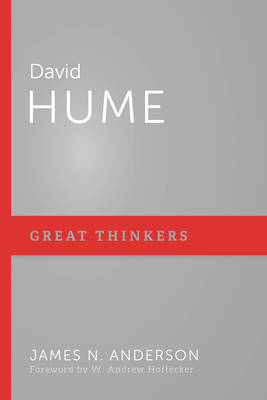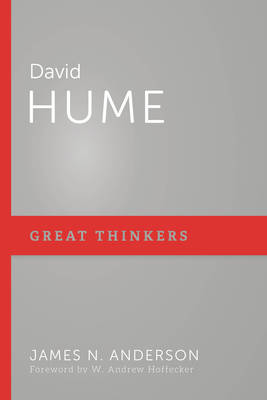
- Afhalen na 1 uur in een winkel met voorraad
- Gratis thuislevering in België vanaf € 30
- Ruim aanbod met 7 miljoen producten
- Afhalen na 1 uur in een winkel met voorraad
- Gratis thuislevering in België vanaf € 30
- Ruim aanbod met 7 miljoen producten
Zoeken
Omschrijving
Scottish philosopher David Hume has had an enormous influence on Western civilization. He is a prominent early figure among philosophers who seek a naturalistic grounding for moral norms. In science, his so-called "problem of induction" has no widely accepted solution. And his forceful critique of supernaturalism undermined Western confidence in orthodox Christianity. Although he addressed a wide range of topics, Hume's writings represent the outworking of an ambitious philosophical and scientific program to understand the world, especially human thought and action, in entirely naturalistic terms. Anderson summarizes the major points of Hume's thought and offers a critical assessment from a distinctively Reformed perspective. He shows that Hume's arguments, far from refuting the Christian worldview, indirectly support that worldview by exposing the self-defeating implications of naturalism.
Specificaties
Betrokkenen
- Auteur(s):
- Uitgeverij:
Inhoud
- Aantal bladzijden:
- 160
- Taal:
- Engels
- Reeks:
Eigenschappen
- Productcode (EAN):
- 9781629952796
- Verschijningsdatum:
- 1/11/2019
- Uitvoering:
- Paperback
- Formaat:
- Trade paperback (VS)
- Afmetingen:
- 150 mm x 226 mm
- Gewicht:
- 272 g

Alleen bij Standaard Boekhandel
+ 41 punten op je klantenkaart van Standaard Boekhandel
Beoordelingen
We publiceren alleen reviews die voldoen aan de voorwaarden voor reviews. Bekijk onze voorwaarden voor reviews.











